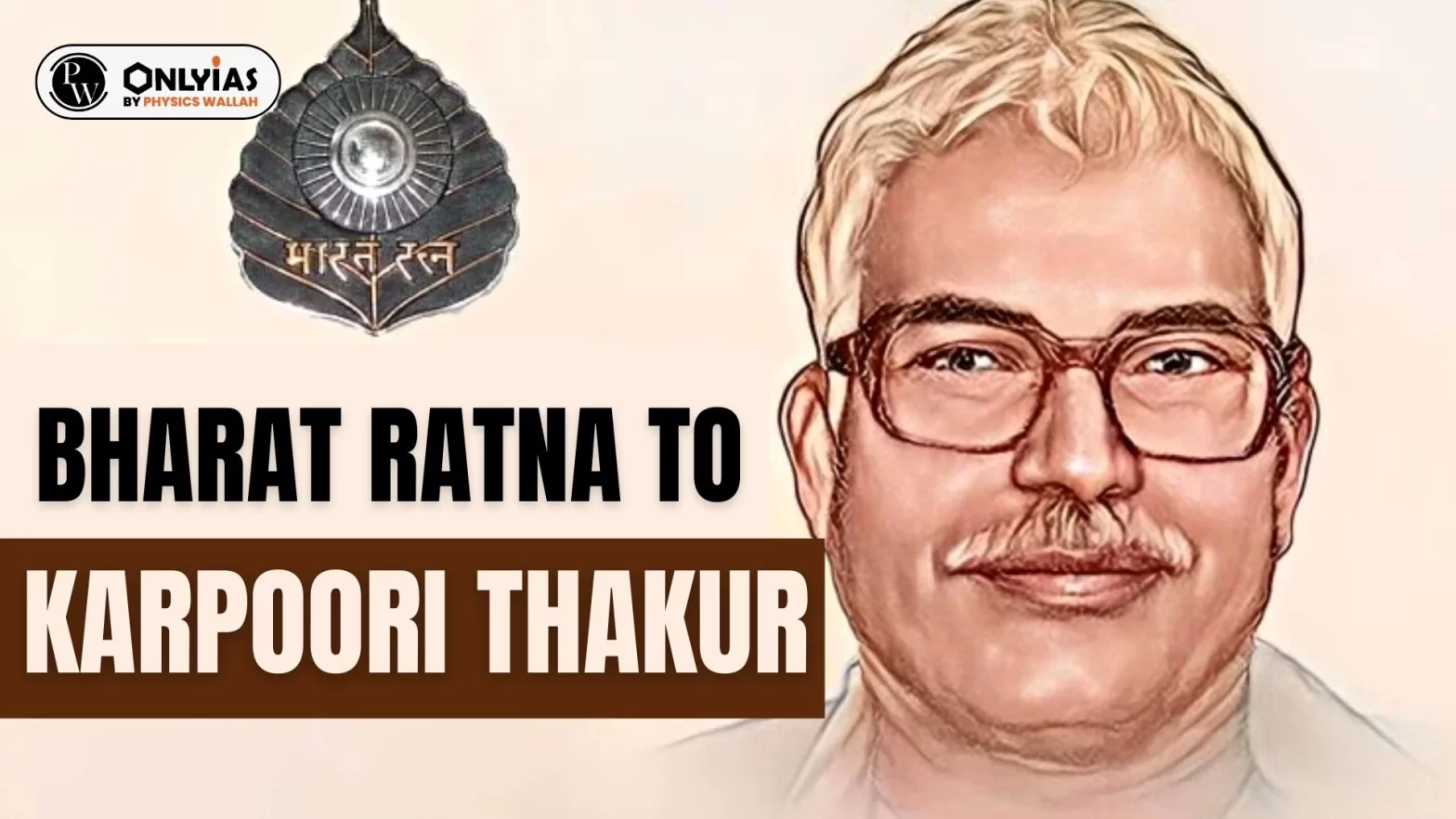![]() 25 Jan 2024
25 Jan 2024

This editorial is based on the news “Karpoori Thakur’s vision of social justice inspires our governance model: PM Modi” which was published in The Hindu. Ex Bihar Chief Minister Karpoori Thakur will posthumously be honored with Bharat Ratna. It was announced on his 100th birth anniversary.
| Relevancy for Prelims: Bharat Ratna, Karpoori Thakur, Quit India movement, Mungerilal Commission, and Mid-day Meal Scheme.
Relevancy for Mains: Karpoori Thakur’s Ethical Values and Conduct. |
|---|
Karpoori Thakur
| Must Read | |
| NCERT Notes For UPSC | UPSC Daily Current Affairs |
| UPSC Blogs | UPSC Daily Editorials |
| Daily Current Affairs Quiz | Daily Main Answer Writing |
| UPSC Mains Previous Year Papers | UPSC Test Series 2024 |

<div class="new-fform">
</div>